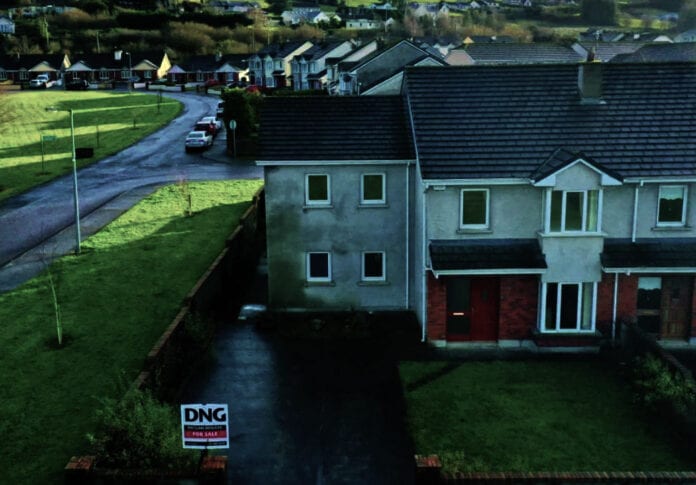ACCORDING to the latest residential market review from leading property advisors; DNG, house price inflation is now running at its highest level since 2017. Prices are now 11.1% higher at a national level and are 11.3% higher in the South West than they were in June 2020, as a result of strong price inflation in the market during the first six months of 2021. In the six months since January 2021 prices at a national level have increased in value by 7.9% on average.
The DNG National Price Gauge, which tracks residential property price movements at a national level, excluding Dublin, shows that the average price of a home now stands at €233,582 up from €210,258 in June 2020. In the South West region the average price of a resale property now stands at €266,844 up from €239,671 in June 2020. The report also notes that at a regional level, the annual rate of price inflation in the year to June 2021 was strongest in the Mid West (15.8%), Midlands (11.4%), South West (11.3%) but below the overall national average in the West (9.5%) and South East (9.6%) Border (10.2%) and Mid-East (10.6%) regions.
The report highlights the fact that in the year to December 2020 the annual rate of house price inflation was running at 1.4% nationally. However strong demand, coupled with a scarcity of homes for sale in the market, has served to drive up residential property prices across the country in the first half of 2021. In the first six months of the year, an uptick in the rate of increase in house prices has been driven by the shortage of supply in the context of rising disposable income, elevated savings levels and demographic pressures.
At a national level, an analysis of the stock of homes currently for sale indicates that there are approximately 35% fewer homes listed for sale now, compared to the same time last year, and 45% fewer than at the same point in 2019.
In Dublin, inflation stand at 9.1% and the average price of a resale property now stands at €482,617, its highest level since the first quarter of 2009. However, the report notes that residential property prices in the capital are still 33% below their previous peak level in 2006 but have effectively doubled (99%) since the market low point in 2012.
DNG forecasts that the current rate of price growth evident in the residential market will be a temporary phenomenon and will start to ease back later in the year as pent-up demand is satisfied and fewer exemptions to the Central Banks Macroprudential rules are available to buyers from lender institutions. In addition, there is solid evidence that the number of homes coming to the market is also increasing, albeit gradually, with DNG noting that instruction levels were 12% higher in Q2 compared to Q1 2021, and 152% ahead of Q2 2020.
Commenting on the figures, DNG’s Director of Research Paul Murgatroyd said, “The latest results of the DNG House Price and National Price Gauges show that residential property inflation has accelerated markedly in recent months, driven primarily by increased first time buyer demand on foot of record levels of mortgage approvals. Our analysis of purchasers during the second quarter shows that first time buyers continue to dominate the resale market accounting for 54% of purchases during the period. In addition, over two thirds (70%) of buyers rely on mortgage finance in order to complete their transaction”.
He continued, “The elevated level of demand in the current market is evident now because of the easing of the restrictions placed on the property sector and house hunters during the last lockdown. Buyers who had paused their property search during lockdown are now back in the market competing with those buyers with more recent loan approvals.”
DNG CEO Keith Lowe added, “Prices nationally are rising at a faster rate than in Dublin however, prices outside the capital are rising from a much lower base. Covid 19 has been a game changer for the housing market as it has been in most developed countries. Buyers have more savings and are more focussed on making life changing decisions than they were before the pandemic. In addition, an increasing number of ex-pats are also returning home and purchasing high end properties as many can now work remotely”. He added, “In the new homes market, large parts of the construction industry remained closed during the most recent lockdown which impacted new homes supply, and in the second hand market many older members of society have delayed moving home awaiting full vaccination and the confidence to move forward. We have noticed that an increasing proportion of buyers are now seeking to buy in their home localities rather than in Dublin, as the prevalence of remote working increases. In addition, demand for holiday homes has increased noticeably since the start of the year thus driving up prices in those regions.”







